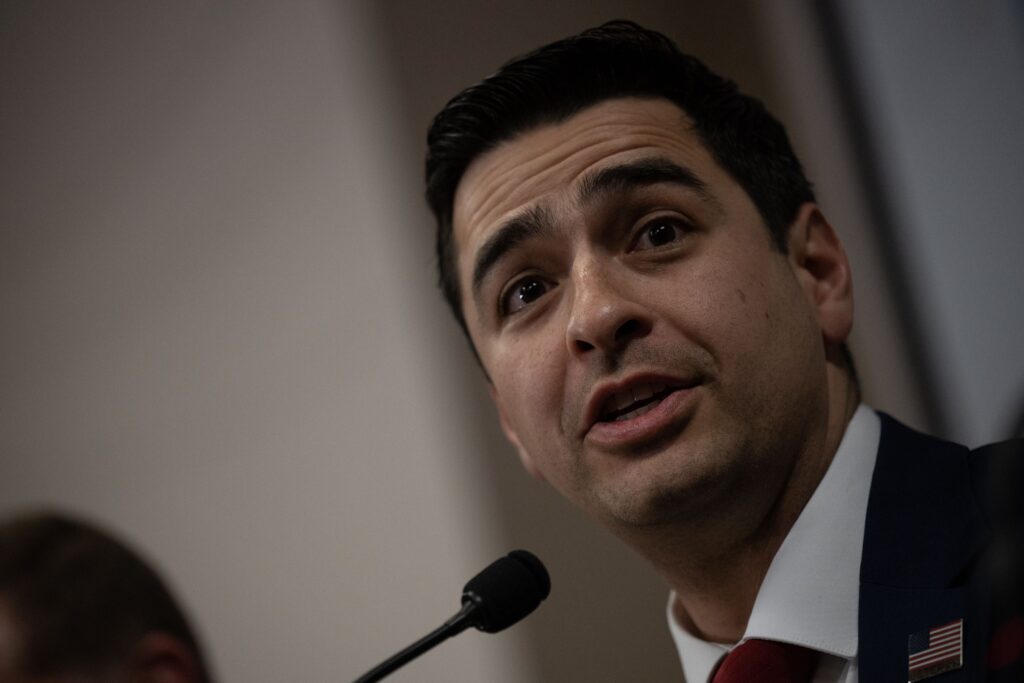Reaction to passage of fentanyl bill is mixed: Some praise, others decry measure
Some are less than thrilled with the changes legislators adopted during a hearing Wednesday on a sweeping bill encapsulating the state’s response to the fentanyl crisis, notably the decision to increase criminal penalties for possession of the deadly drug.
Others, however, complimented the work of the House Judiciary Committee, saying it’s first the first step policymakers have taken in a decade to remove a dangerous substance from the streets.
The committee’s 8-3 vote to pass the measure followed more than 13 hours of hearing that started Tuesday and wrapped up just before 3 a.m. on Wednesday. The bill now moves on to the House Appropriations Committee, which is not likely to review the bill until next week, given that the General Assembly is taking Good Friday off.
One successful amendment that is generating the most controversy would lower the threshold for felony charges for simple possession from 4 grams to 1 gram.
Dr. Josh Barocas, a physician with the University of Colorado School of Medicine who testified during Tuesday’s hearing, said he looks forward to working for the defeat of any lawmaker who voted for that amendment.
The Harm Reduction Action Center called on its supporters to reach out to lawmakers on the House Appropriations Committee in an effort to fight the amendment.
Healthier Colorado, in a statement, also criticized the committee’s decision.
The group said it “vehemently opposes any attempt to refelonize the simple possession of fentanyl and is opposed to HB22-1326 as amended.”
“This is a public health crisis and must be addressed in a manner that adheres to evidence-based solutions, interventions, and services,” the group added.
The group said two decades of research shows incarceration is not an effective deterrent for drug use, and that “refelonizing” simple possession will force people into the criminal justice system and will not lead to fewer overdoses or less drug use. Lawmakers must focus on strategies that target the dealers, as well as fund public health and harm reduction strategies, the group said.
House Minority Leader Rep. Hugh McKean, R-Loveland, however, praised the committee’s work.
“For the first time since Coloradans legalized marijuana for recreational use in 2012, we have taken a step towards removing dangerous drugs from our communities and the hands of our children,” McKean said in a statement Wednesday. “Today, we took the first step to toughen penalties and remove this deadly poison from our streets.”
He noted that significant work remains.
Others said the legislation falls short of confronting fentanyl’s deadly reach.
Public Safety Colorado, a coalition of law enforcement organizations, said legislators missed an opportunity to make possession of fentanyl at any level a felony. The group said lawmakers chose to compromise the lives of Coloradans even with the amendment to lower the felony threshold to 1 gram. The group pledged to continue to push for changes that would make possession of any amount of fentanyl a felony.
House Speaker Alec Garnett, D-Denver, who sponsored the bill, attempted to clear up the confusion about the difference between pure fentanyl and what the bill addresses, which is a compound mixture of drugs that includes fentanyl.
“This is a process we’ve been working on” for the entire session and that is to develop a comprehensive approach to the fentanyl crisis, he said. The bill as amended is stronger, he insisted.
“I’m proud of the bipartisan support we received,” he added.
People don’t know yet the deadliness of fentanyl, and the bill includes an education campaign to warn kids and young adults of those dangers, Garnett said.
“We cannot fail when it comes to passing this bill,” he said.
The speaker said he would support putting more resources toward law enforcement so they can do investigations into the deaths of those felled by fentanyl, a request made by families during Tuesday’s hearing.
“We heard the families loud and clear last night,” he said.
Meanwhile, the new crimes and penalties in the bill will incentivize prosecutors to go after the dealers who sell fentanyl that results in death, he said.
But Garnett also noted that people continue to conflate pure and compound mixture fentanyl. There isn’t a lot of pure fentanyl on the street – law enforcement officials testified Tuesday that what they’re finding is fentanyl mixed with either acetaminophen or aspirin, or illicit drugs, such as heroin, cocaine, methamphetamine and even street level marijuana. Pure fentanyl is rare, and primarily used for mixing with those other drugs, those officials said.
Pills on the street contain a fraction of fentanyl, as little as 0.1 gram in a pill, experts said Tuesday.
The committee also adopted an amendment that creates a level 2 drug felony for those who possess compound drugs where fentanyl is at least 60% of the drug. The amendment directs the Colorado Bureau of Investigation to notify the state when it has the resources to do that kind of testing.
CBI already tests fentanyl, but the current technology only tells the agency whether a drug tests positive for fentanyl, not the percentage of fentanyl in the drug. Only the U.S. Drug Enforcement Administration has that capability, which Garnett acknowledged during the hearing on Tuesday.
CBI has neither the technology nor the money to obtain the technology that makes that kind of determination, nor does the bill provide the funding for purchasing the equipment.
But there’s a bigger problem, and that’s risk.
Lance Allen, interim deputy director for forensic services, told Colorado Politics last month that in order to do those tests, the pills must be crushed, and that puts the drugs into the air, which creates a health risk for laboratory staff.
Garnett, when asked about the CBI amendment, said the technology is coming, but he said putting resources into purchasing that technology isn’t necessary right now. But he also appeared to walk it back, saying the amendment is permissive and does not force CBI to obtain the needed technology.













